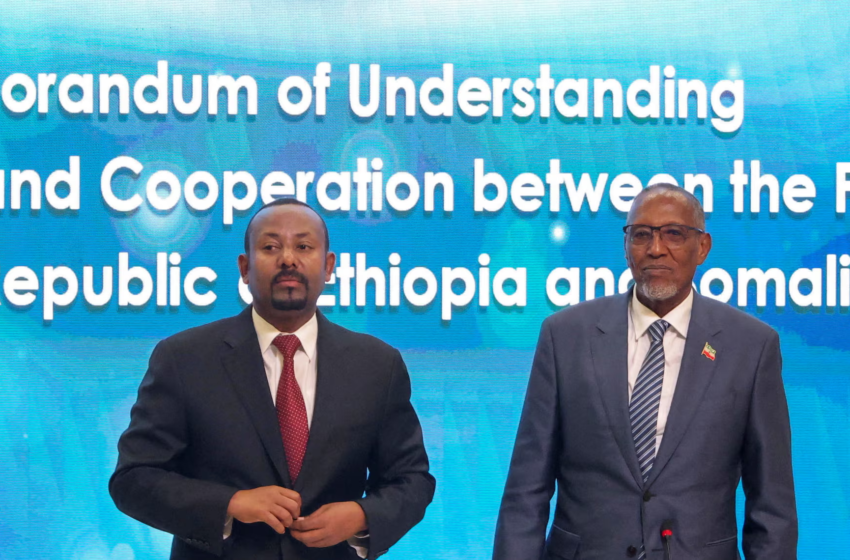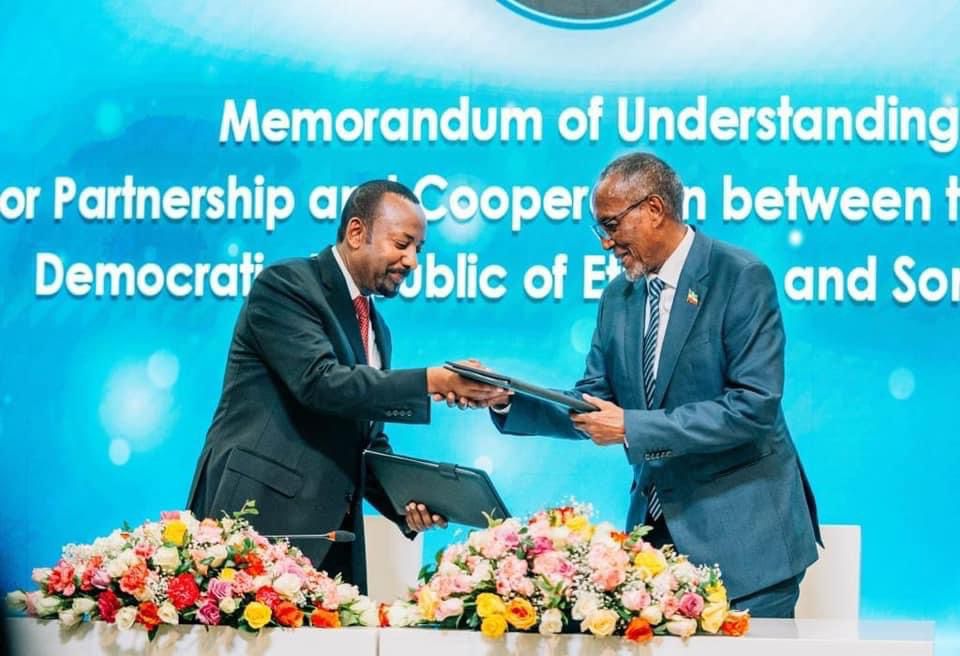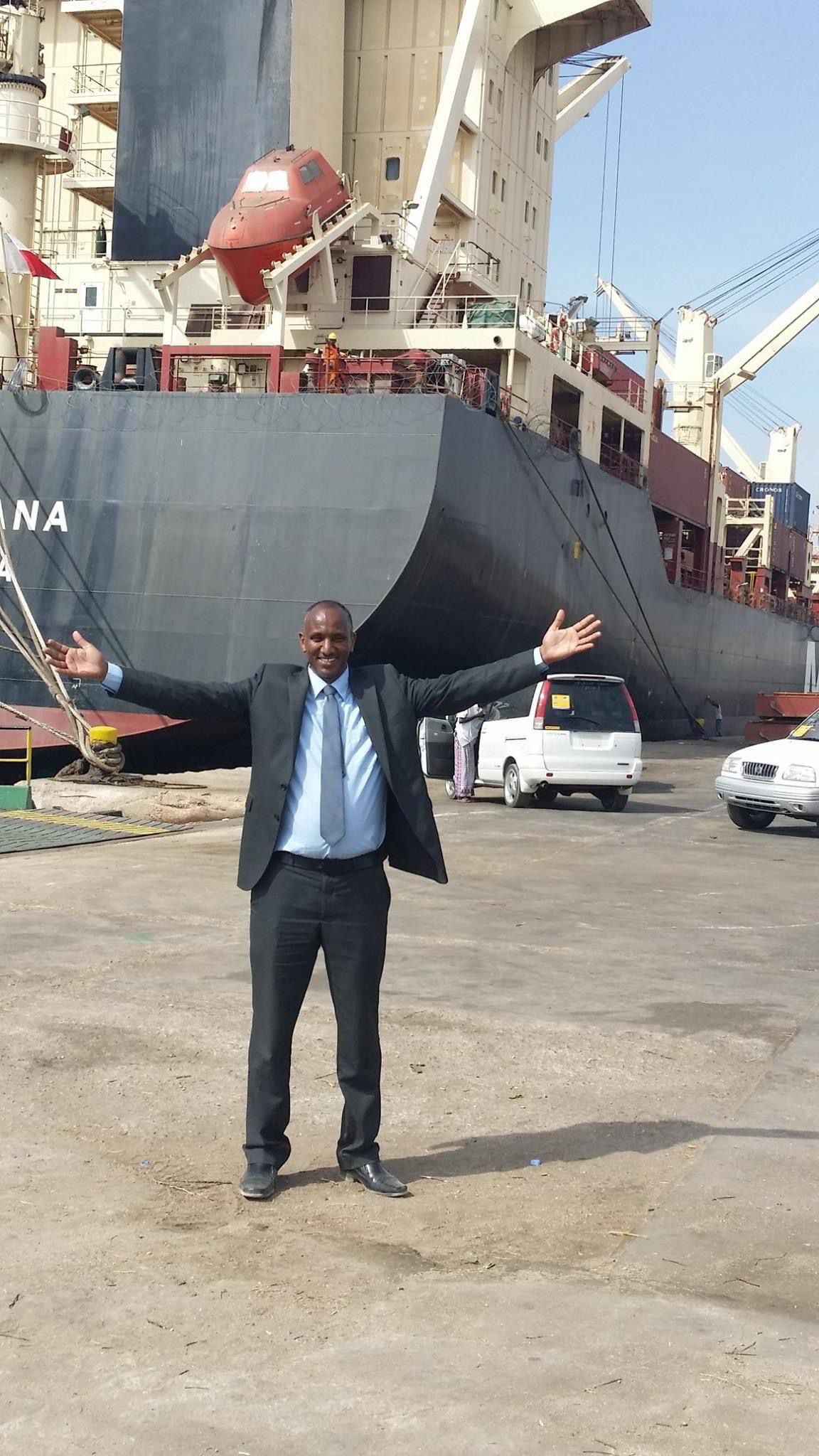
Ambassador Kaysar Maxamed: ‘Somaliland aims to contribute to regional stability and cooperation in the dynamic Horn of Africa’
On 1 January 2024, Ethiopian Prime Minister Abiy Ahmed and Somali President Muse Bihi Abdi signed a Memorandum of Understanding. The agreement gives Ethiopia access to the Red Sea port of Berbera and a leased military base.
The EU said in a statement that it “wishes to recall the importance of respect for the unity, sovereignty and territorial integrity of the Federal Republic of Somalia under its Constitution, the African Union and the UN Charter. This is crucial for peace and stability in the whole Horn of Africa region.”
The agreement gave us the opportunity to take a closer look at the situation in Republic of Somaliland and the possible consequences of the agreement. That is why I asked for an interview with His Excellency Mr Kaysar Maxamed, Ambassador of Somaliland to the Benelux.
Q: Mr Ambassador, before we go into the details of the aforementioned agreement, I would like to ask you to say a few words about Republic of Somaliland itself. When did it become independent and how many countries recognise its independence?
Ambassador Kaysar: Somaliland is located in the Horn of Africa. Since declaring independence from the former Republic of Somalia in 1991, Somaliland has remained peaceful and democratic country following a different path from Somalia. While Somalia is often described as a fragile state with a struggling government and limited control over its capital, Mogadishu, Somaliland, formerly a British protectorate, was the first East African country to gain independence on 26 June 1960, before voluntarily agreeing to unite with Somalia (a former Italian colony) to form the Republic of Somalia.
However, as the agreed ‘Act of Union’ was never ratified, this union was doomed to failure from the start. After decades of enduring unequal power-sharing, repression and genocide, the Republic of Somalia reasserted its sovereignty on 18 May 1991 and regained its independence within the borders of 26 June 1960.
I am proud to say that the Republic of Somaliland has been under sovereign and democratic governance for 32 years. Somaliland has established diplomatic relations and international cooperation with a number of countries and has entered into long-term international agreements that serve the interests of the country.
Q: What is Somaliland’s current relationship with Somalia?
Ambassador Kaysar: Somalia has gone its own way and established its current federal government in 2011 after years of turmoil. Somalia has avoided talking to our government for the past 15 years, and is only making its voice heard now because Ethiopia has signed an agreement with its partner Somaliland. Somalia has not looked kindly on this agreement. As their president, Hassan Sheikh Mohamud, said, ‘We can give Ethiopia a lot of ports, if they come to Somalia, they don’t have to go to Somaliland”. It just never occurred to them to do that. It seems that Somalia is still approaching this situation as it did in 1960, with Somalilanders seen as second-class citizens who have no choice about their own future. For us, this agreement is extremely important, as it opens the way for increased cooperation in the areas of security, development and economic integration.

In the Memorandum of Understanding, Somaliland and Ethiopia jointly commit to strengthening regional security by working together to fight terrorist groups such as Al-Shabab in Somalia. In terms of development, Ethiopia, as an economic powerhouse in the region, will contribute significantly to Somaliland’s health and higher education sectors. Furthermore, the aspect of economic integration will involve mutual exchange of goods, including vegetables and finished products.
This agreement also includes provisions stating that the Ethiopian government will recognise Somaliland in return for the Somaliland government entering into a lease agreement with Ethiopia so that the country can finally establish a naval base along the Red Sea. The Memorandum of Understanding between Ethiopia and the Republic of Somaliland is a diplomatic achievement that is in line with our shared vision for peace in the Horn of Africa.
Q: Can we hear a bit more about this? How does the agreement address any potential concerns or challenges that may arise for both Somaliland and Ethiopia in establishing a naval base along the Red Sea?
Ambassador Kaysar: Both Somaliland and Ethiopia are aware of the recent security threats in the Red Sea, such as the Houthi attacks in Yemen and the actions of Islamist extremist groups in Somalia. They can be assured that both nations are committed to addressing the challenges posed by the establishment of a naval base, and to taking a united stand against potential threats.”
Q: Given the historical context you have highlighted regarding Somaliland’s independence and its subsequent efforts to engage with the international community, how does this latest agreement fit into Somaliland’s broader diplomatic objectives?

Ambassador Kaysar: “This agreement is a key step in Somaliland’s quest for international recognition. By promoting cooperation with neighbouring countries, Somaliland aims to contribute to regional stability and cooperation within the dynamic Horn of Africa. Such strategic engagements reflect our commitment to proactive diplomacy for the benefit of the entire region.”
Q: But the European Union takes a different view. According to the EU’s External Action Service, “The stability of the region in the east of the African continent is of course vital for the 300 million people living there and this agreement has created tensions throughout the region.”
Ambassador Kaysar: I don’t see it that way and their statement is not based on reality on the ground. My argument is that the European Union should recognise Somaliland’s active role in the Horn of Africa and recognise its distinction from Somalia. Therefore, my government, the government of Somaliland, urges all parties concerned to respect the Memorandum of Understanding between the Republic of Somaliland and the Federal Democratic Republic of Ethiopia.

This agreement is a key step in the Republic of Somaliland’s quest for international recognition. The importance of the recognition mentioned in the MoU cannot be overemphasised. It will amplify the voice of the Somaliland people and empower their democratically elected government to make sovereign decisions about their future. This recognition is a testament to our commitment to self-determination and global cooperation on the international stage.
By fostering cooperation with neighbouring countries, the Republic of Somaliland aims to contribute to regional stability and cooperation within the dynamic Horn of Africa. Such strategic engagements reflect our commitment to proactive diplomacy for the benefit of the entire region.
By Endre Barcs
